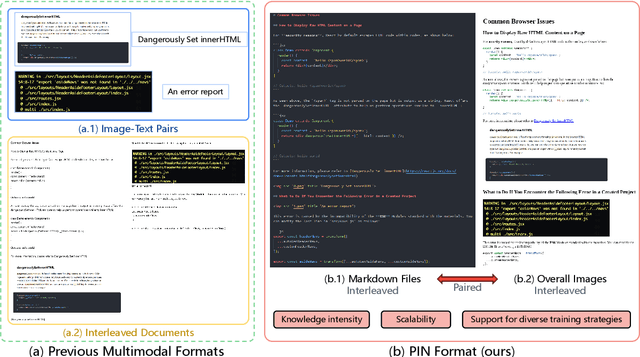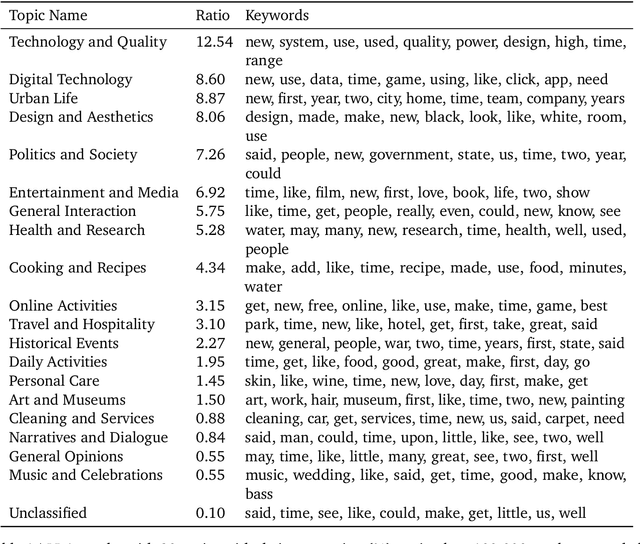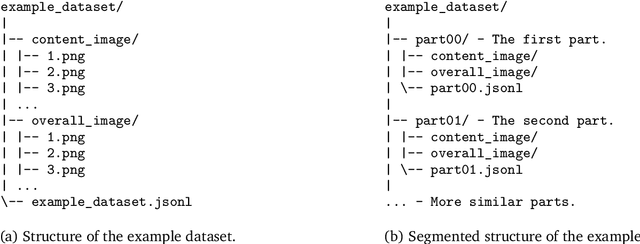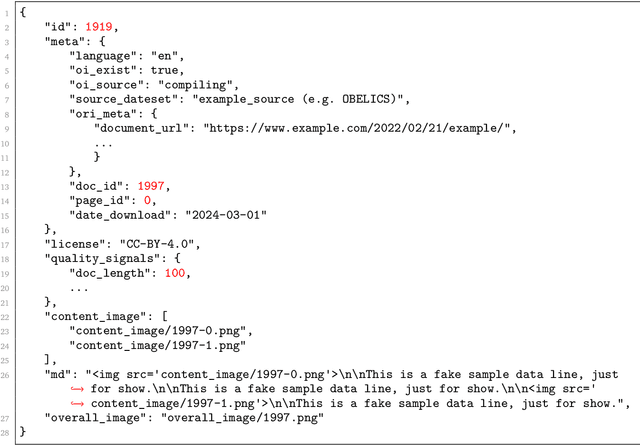Tiezhen Wang
PIN: A Knowledge-Intensive Dataset for Paired and Interleaved Multimodal Documents
Jun 20, 2024



Abstract:Recent advancements in Large Multimodal Models (LMMs) have leveraged extensive multimodal datasets to enhance capabilities in complex knowledge-driven tasks. However, persistent challenges in perceptual and reasoning errors limit their efficacy, particularly in interpreting intricate visual data and deducing multimodal relationships. Addressing these issues, we introduce a novel dataset format, PIN (Paired and INterleaved multimodal documents), designed to significantly improve both the depth and breadth of multimodal training. The PIN format is built on three foundational principles: knowledge intensity, scalability, and support for diverse training modalities. This innovative format combines markdown files and comprehensive images to enrich training data with a dense knowledge structure and versatile training strategies. We present PIN-14M, an open-source dataset comprising 14 million samples derived from a diverse range of Chinese and English sources, tailored to include complex web and scientific content. This dataset is constructed meticulously to ensure data quality and ethical integrity, aiming to facilitate advanced training strategies and improve model robustness against common multimodal training pitfalls. Our initial results, forming the basis of this technical report, suggest significant potential for the PIN format in refining LMM performance, with plans for future expansions and detailed evaluations of its impact on model capabilities.
TensorFlow Lite Micro: Embedded Machine Learning on TinyML Systems
Oct 20, 2020



Abstract:Deep learning inference on embedded devices is a burgeoning field with myriad applications because tiny embedded devices are omnipresent. But we must overcome major challenges before we can benefit from this opportunity. Embedded processors are severely resource constrained. Their nearest mobile counterparts exhibit at least a 100---1,000x difference in compute capability, memory availability, and power consumption. As a result, the machine-learning (ML) models and associated ML inference framework must not only execute efficiently but also operate in a few kilobytes of memory. Also, the embedded devices' ecosystem is heavily fragmented. To maximize efficiency, system vendors often omit many features that commonly appear in mainstream systems, including dynamic memory allocation and virtual memory, that allow for cross-platform interoperability. The hardware comes in many flavors (e.g., instruction-set architecture and FPU support, or lack thereof). We introduce TensorFlow Lite Micro (TF Micro), an open-source ML inference framework for running deep-learning models on embedded systems. TF Micro tackles the efficiency requirements imposed by embedded-system resource constraints and the fragmentation challenges that make cross-platform interoperability nearly impossible. The framework adopts a unique interpreter-based approach that provides flexibility while overcoming these challenges. This paper explains the design decisions behind TF Micro and describes its implementation details. Also, we present an evaluation to demonstrate its low resource requirement and minimal run-time performance overhead.
 Add to Chrome
Add to Chrome Add to Firefox
Add to Firefox Add to Edge
Add to Edge